Speakers
Plenary Speakers
Prof. NADYA MASON, Professor of Physics, University of Illinois Urbana-Champaign
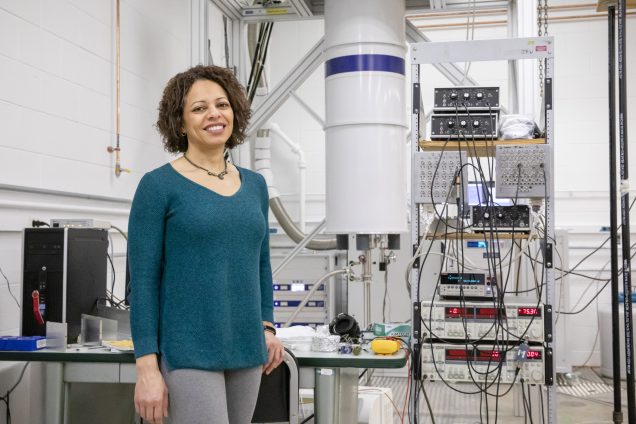
Nadya Mason is the Rosalyn S. Yalow Professor of Physics at the University of Illinois at Urbana-Champaign, where she specializes in experimental studies of materials. She received her B.S. from Harvard University and her PhD from Stanford University, both in physics. Dr. Mason’s research focuses on the electronic properties of small-scale materials, such as nano-scale wires and atomically thin membranes. Her research is relevant to applications involving nano-scale and quantum computing elements. She currently serves as founding Director of the Illinois Materials Research Science and Engineering Center (I-MRSEC), a $16.1 million multidisciplinary research and education center funded by the National Science Foundation, and was recently named Director of the Illinois Beckman Institute. In addition to maintaining a rigorous research program and teaching, Dr. Mason works to increase diversity in the physical sciences, particularly through mentoring, and is former chair of the American Physical Society (APS) Committee on Minorities. Dr. Mason can also be seen promoting science on local TV, at the Chicago Museum of Science and Industry, and in a TED talk on “Scientific Curiosity.” Dr. Mason has been recognized for her work with numerous awards, including the 2009 Denise Denton Emerging Leader Award, the 2012 APS Maria Goeppert Mayer Award, and the 2019 APS Bouchet Award. In 2021 she was elected to both the American Academy of Arts and Sciences and the National Academy of Sciences.
Prof. MELISSA FRANKLIN, Mallinckrodt Professor of Physics, Harvard University

“Melissa Franklin is an experimental particle physicist who studies proton-proton collisions produced by Large Hadron Collider(LHC). She is a collaborator on the ATLAS experiment at the LHC where she works in collaboration with over 3000 physicists. Franklin was co-discoverer of the top quark and the Higgs boson. She is presently studying the properties of the Higgs boson and searching for new physics beyond the Standard Model. Professor Franklin, born and raised in Canada, received her B.Sc. from the University of Toronto and her Doctorate from Stanford University. She worked as a post-doctoral fellow at Lawrence Berkeley Lab, was an assistant professor at the University of Illinois in Champagne/Urbana and was a Junior Fellow in the Society of Fellows at Harvard, before joining the Harvard faculty in 1989. In 1992 she became the first woman to receive tenure in the Physics department and she served as Chair of the Physics department from 2010-2014” (Department of Physics Website, Harvard University)
Prof. LATHA VENKATARAMAN, Lawrence Gussman Professor of Applied Physics and Professor of Chemistry, Columbia University
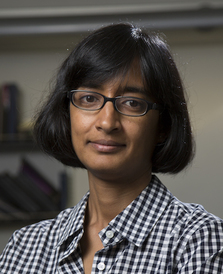 Latha Venkataraman and her group measure the fundamental properties of single molecule devices, seeking to understand the interplay of physics, chemistry, and engineering at the nanometer scale. The underlying focus of her research is to fabricate single molecule circuits, a molecule attached to two electrodes, with varied functionality, where the circuit structure is defined with atomic precision. She measures electronic conduction, single bond breaking forces, thermoelectric and electrochemical properties of these devices. Her interdisciplinary and collaborative research, working together with synthetic chemist and theory groups, provides a deeper understanding of the fundamental physics of electron transport, while laying the groundwork for technological advances at the nanometer scale. Besides advancing the field of nanoscale electronics, her work has also broadened understanding of charge transfer at metal/organic interfaces which has impact on the fields of organic electronics, photovoltaics, catalysis, and charge transfer processes in biological systems.
Latha Venkataraman and her group measure the fundamental properties of single molecule devices, seeking to understand the interplay of physics, chemistry, and engineering at the nanometer scale. The underlying focus of her research is to fabricate single molecule circuits, a molecule attached to two electrodes, with varied functionality, where the circuit structure is defined with atomic precision. She measures electronic conduction, single bond breaking forces, thermoelectric and electrochemical properties of these devices. Her interdisciplinary and collaborative research, working together with synthetic chemist and theory groups, provides a deeper understanding of the fundamental physics of electron transport, while laying the groundwork for technological advances at the nanometer scale. Besides advancing the field of nanoscale electronics, her work has also broadened understanding of charge transfer at metal/organic interfaces which has impact on the fields of organic electronics, photovoltaics, catalysis, and charge transfer processes in biological systems.
Dr. CLARE BERNARD, Head of the Data Sciences Platform at the Broad Institute of MIT and Harvard
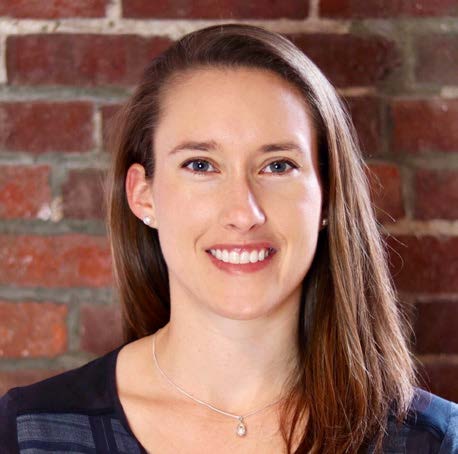 Clare Bernard is the Head of the Data Sciences Platform at the Broad Institute of MIT and Harvard. The Data Sciences Platform is a group of approximately 250 software engineers and computational biologists who are responsible for the development and operations of software products used for analyzing biomedical data including GATK and the Terra Platform (which is a collaboration between the Broad Institute, Microsoft, and Verily Life Sciences). Prior to joining the Broad, Clare led product and engineering at Tamr, a Cambridge-based software company that uses machine learning to integrate large datasets. She received her B.S. in math and physics from Johns Hopkins University and her PhD from Boston University for research in particle physics conducted at the Large Hadron Collider.
Clare Bernard is the Head of the Data Sciences Platform at the Broad Institute of MIT and Harvard. The Data Sciences Platform is a group of approximately 250 software engineers and computational biologists who are responsible for the development and operations of software products used for analyzing biomedical data including GATK and the Terra Platform (which is a collaboration between the Broad Institute, Microsoft, and Verily Life Sciences). Prior to joining the Broad, Clare led product and engineering at Tamr, a Cambridge-based software company that uses machine learning to integrate large datasets. She received her B.S. in math and physics from Johns Hopkins University and her PhD from Boston University for research in particle physics conducted at the Large Hadron Collider.
Panelists
Prof. RAMA BANSIL, Emerita Professor of Physics and Professor of Materials Science and Engineering, Boston University
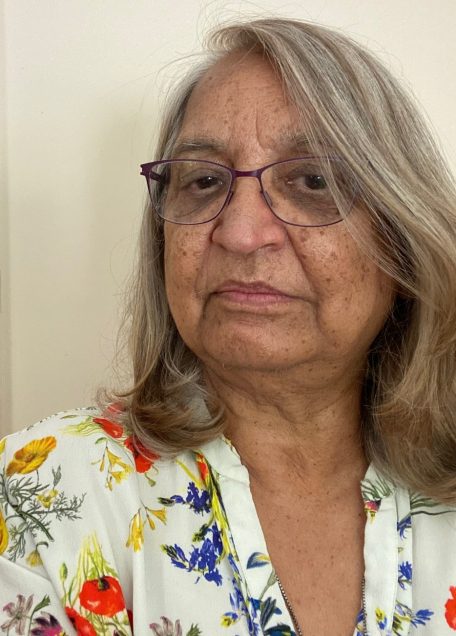
Prof. Rama Bansil’s research is in the area of soft condensed matter physics of polymers and gels and biophysics of mucus. Current focus is on understanding how the viscoelastic properties of mucus influence the motility of the ulcer causing bacterium, H. pylori. She has published over 100 papers and her research has been funded by grants from NSF and NIH. Professor Bansil held a Junior Faculty Fellowship of the American Cancer Society and was also a Bunting Fellow at Radcliffe College, Harvard University. She is a Fellow of the American Physical Society. She served as a Program Director for the MRSEC program at NSF from 2007-2009.
Prof. EMANUELA BARBERIS, Professor of Physics, Northeastern University
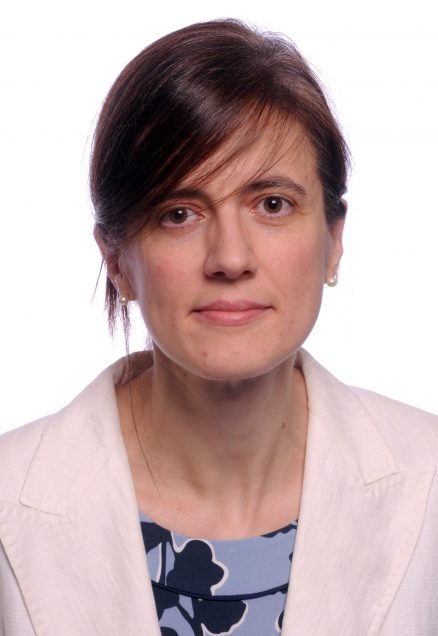 Professor Barberis’s research in experimental particle physics is focused on the study of matter at the smallest distance scale. She is currently working on the CMS experiment at the CERN Large Hadron Collider. Prof. Barberis works on searches for new physics beyond the Standard Model (leptoquarks searches, dark matter searches, and searches for non-Standard Model production of two Higgs bosons) and on the precision measurement of Standard Model processes (e.g. the production of W bosons association with jets). She recently co-led the CMS Standard Model physics group. On the CMS experiment, Prof. Barberis’ work focuses on the operations and upgrade of End-Cap Muon chambers and the Level-1 Muon trigger system. Before joining the CMS Experiment, Prof. Barberis worked on the DØ experiment at the Fermilab Tevatron Collider, where she led the effort to design and implement the software system which reconstructed events recorded by the Silicon Microstrip tracker, and co-led the Top quark physics analysis group.
Professor Barberis’s research in experimental particle physics is focused on the study of matter at the smallest distance scale. She is currently working on the CMS experiment at the CERN Large Hadron Collider. Prof. Barberis works on searches for new physics beyond the Standard Model (leptoquarks searches, dark matter searches, and searches for non-Standard Model production of two Higgs bosons) and on the precision measurement of Standard Model processes (e.g. the production of W bosons association with jets). She recently co-led the CMS Standard Model physics group. On the CMS experiment, Prof. Barberis’ work focuses on the operations and upgrade of End-Cap Muon chambers and the Level-1 Muon trigger system. Before joining the CMS Experiment, Prof. Barberis worked on the DØ experiment at the Fermilab Tevatron Collider, where she led the effort to design and implement the software system which reconstructed events recorded by the Silicon Microstrip tracker, and co-led the Top quark physics analysis group.
Lieutenant Colonel CRAIG BOUCHER, Director of the U.S. Army Space and Missile Defense Command (USASMDC) Space and High-Altitude Research Center (SHARC) at the U.S. Military Academy, Westpoint, NY
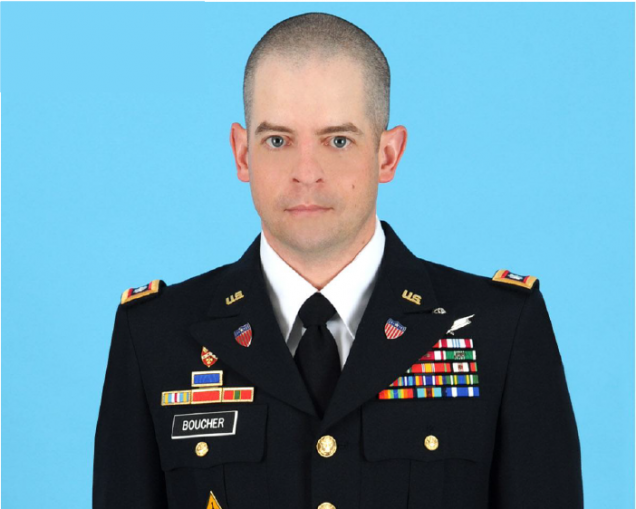 LTC Boucher graduated from Boston University in 2002 with a Bachelor of Science in Aerospace Engineering and was commissioned as a Second Lieutenant in the United States Army. After serving multiple overseas tours in Germany and Iraq, Craig returned to BU and completed his master’s degree in Aerospace Engineering in 2009. While at BU he began his research interests investigating vibrations and damping treatments in Naval vessels with Dr. Greg McDaniel in the College of Engineering. In 2011, Craig become an Army Space Operations Officer and has completed 6 tours of duty in Germany, Afghanistan, South Korea, and domestically. He’s served as an Army Space Operations Officer at all echelons from a Field Artillery Brigade to U.S. Strategic Command and has spent the last five years in academia – as training with industry fellow at Analytical Graphics Incorporated, as Military Lecturer at the Naval Postgraduate School, and currently as an Instructor at West Point and Director of the USASMDC-SHARC. His current research interests include active and passive tracking of aircraft and satellites, hypersonic systems, space policy, and satellite communications. Over his 20-year career, LTC Boucher has received numerous awards to include the Bronze Star, Presidential Unit Citation, and Army Master Space Badge. Craig has been married to his wife and fellow BU alum Amanda for just over 20 years.
LTC Boucher graduated from Boston University in 2002 with a Bachelor of Science in Aerospace Engineering and was commissioned as a Second Lieutenant in the United States Army. After serving multiple overseas tours in Germany and Iraq, Craig returned to BU and completed his master’s degree in Aerospace Engineering in 2009. While at BU he began his research interests investigating vibrations and damping treatments in Naval vessels with Dr. Greg McDaniel in the College of Engineering. In 2011, Craig become an Army Space Operations Officer and has completed 6 tours of duty in Germany, Afghanistan, South Korea, and domestically. He’s served as an Army Space Operations Officer at all echelons from a Field Artillery Brigade to U.S. Strategic Command and has spent the last five years in academia – as training with industry fellow at Analytical Graphics Incorporated, as Military Lecturer at the Naval Postgraduate School, and currently as an Instructor at West Point and Director of the USASMDC-SHARC. His current research interests include active and passive tracking of aircraft and satellites, hypersonic systems, space policy, and satellite communications. Over his 20-year career, LTC Boucher has received numerous awards to include the Bronze Star, Presidential Unit Citation, and Army Master Space Badge. Craig has been married to his wife and fellow BU alum Amanda for just over 20 years.
MEADOW BRANDBY, PhD candidate in Physics, Boston University
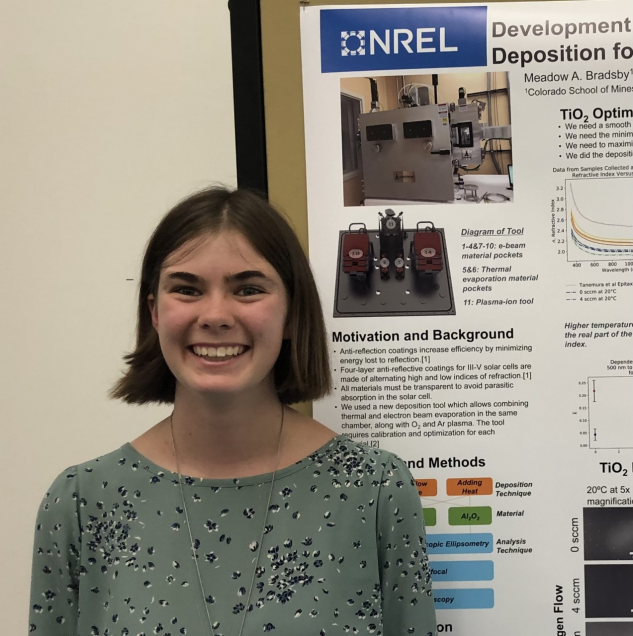
Meadow Bradsby is a second year PhD student at Boston University studying physics. She conducts research using birefringent microscopy to study the impact of Alzheimer’s on arteries in the brain with collaborators in biomedical engineering, medicine and mechanical engineering. Meadow went to Colorado School of Mines for her undergraduate degree in engineering physics and did her masters thesis at the National Renewable Energy Laboratory. She attended CUWIP her sophomore year and broadened and deepened connections to fellow physicists there, as well as gaining more of a foothold in her identity as a physicist.
Prof. CASEY BERGER, Visiting Assistant Professor of Physics, Smith College
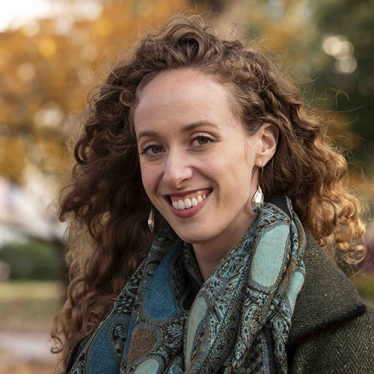 Casey’s research is in applying high performance computing to many-body quantum systems. She’s currently investigating the effectiveness of the complex Langevin method to overcome the sign problem in quantum materials. Previously, she was a postdoctoral research associate at Boston University in the physics department and the Hariri Institute for Computing. She earned her PhD from the University of North Carolina at Chapel Hill, where she was a Department of Energy Computational Science Graduate Fellow and a William Neal Reynolds fellow in the Royster Society of Fellows.
Casey’s research is in applying high performance computing to many-body quantum systems. She’s currently investigating the effectiveness of the complex Langevin method to overcome the sign problem in quantum materials. Previously, she was a postdoctoral research associate at Boston University in the physics department and the Hariri Institute for Computing. She earned her PhD from the University of North Carolina at Chapel Hill, where she was a Department of Energy Computational Science Graduate Fellow and a William Neal Reynolds fellow in the Royster Society of Fellows.
She also works on issues of diversity and equity in STEM, with an emphasis on improving representation and support of women, LGBTQ folks, BIPOC, and other underrepresented groups in STEM. When she’s not doing science, you can find her working on her novels or outside running, hiking, or kayaking.
Prof. GERALDINE COCHRAN, Associate Professor of Professional Practice at Rutgers University
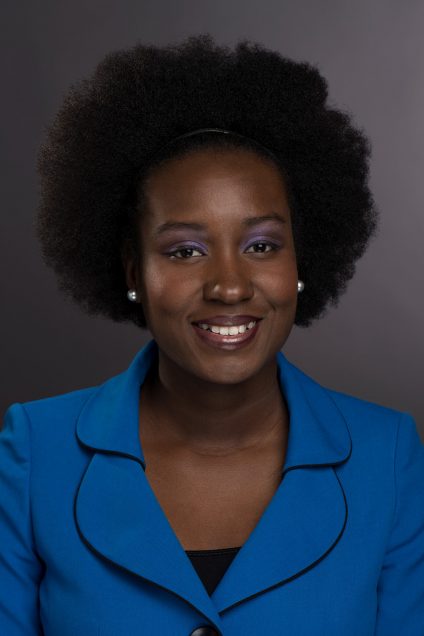 Dr. Geraldine L. Cochran is an Associate Professor of Professional Practice at Rutgers University in a joint position in the Office of STEM Education and the Department of Physics and Astronomy. In addition to engaging in equity-oriented research and evaluation, she teaches one of the large-enrollment, introductory physics sequences for engineering majors.
Dr. Geraldine L. Cochran is an Associate Professor of Professional Practice at Rutgers University in a joint position in the Office of STEM Education and the Department of Physics and Astronomy. In addition to engaging in equity-oriented research and evaluation, she teaches one of the large-enrollment, introductory physics sequences for engineering majors.
SAVVY DEMERS, Executive Director of MassCUE
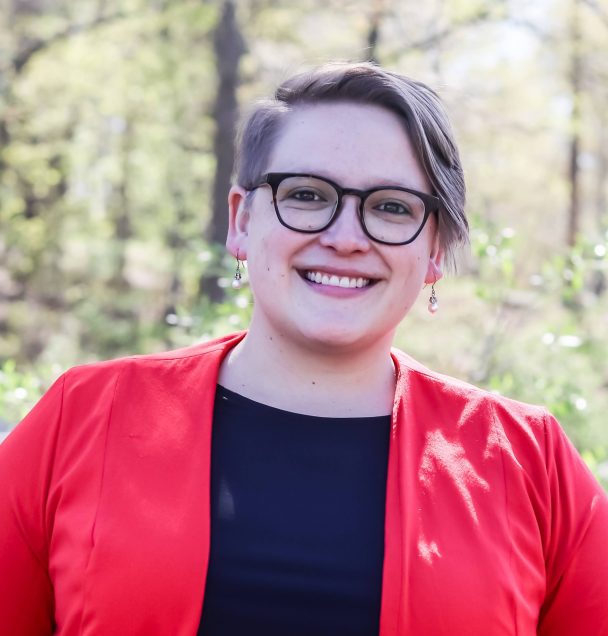 Savvy Demers is a Maine native who’s love for physics started as a way to apply math to things that matter (pun intended). After an experience in physics research at NASA through the Maine Space Grant Consortium, she realized the amount of gatekeeping that existed in astrophysics. It became her goal to make physics more accessible and inclusive. As an outreach educator at the Museum of Science in Boston she brought fun physics experiments to schools, libraries, and summer camps in the Greater Boston area. As a physics teacher for the past 10 years she worked to ensure that physics was not only accessible to all, but also fun and engaging. As such she became a part of the STEP UP Physics Ambassador program, later becoming an ambassador lead, and then a chair of the AAPT committee on diversity. She currently works as the executive director of MassCUE, ensuring that science, technology, engineering, and math learning can be accessed by everyone everywhere.
Savvy Demers is a Maine native who’s love for physics started as a way to apply math to things that matter (pun intended). After an experience in physics research at NASA through the Maine Space Grant Consortium, she realized the amount of gatekeeping that existed in astrophysics. It became her goal to make physics more accessible and inclusive. As an outreach educator at the Museum of Science in Boston she brought fun physics experiments to schools, libraries, and summer camps in the Greater Boston area. As a physics teacher for the past 10 years she worked to ensure that physics was not only accessible to all, but also fun and engaging. As such she became a part of the STEP UP Physics Ambassador program, later becoming an ambassador lead, and then a chair of the AAPT committee on diversity. She currently works as the executive director of MassCUE, ensuring that science, technology, engineering, and math learning can be accessed by everyone everywhere.
DR. SUSANNAH DICKERSON, staff scientist at Draper Labs
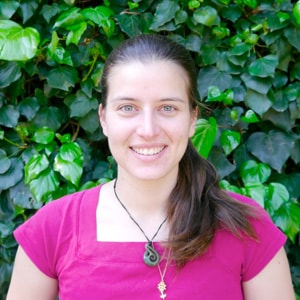
Susannah is currently a staff scientist at Draper Labs where she builds and fields quantum accelerometers and clocks for navigation and timekeeping. Previously, she worked as a postdoc in the Greiner Group at Harvard University on the development of an erbium quantum gas microscope to use atoms to simulate condensed matter physics. And as a graduate student in the Kasevich group at Stanford University she launched atoms in a 10 meter tower to measure gravity in an effort to investigate Einstein’s equivalence principle with extreme precision. The mom of two small children, the rest of her time is filled with playgrounds, book-reading, and the occasional baking experiment.
EMILY GOSH, PhD student in BU Material Science and Engineering
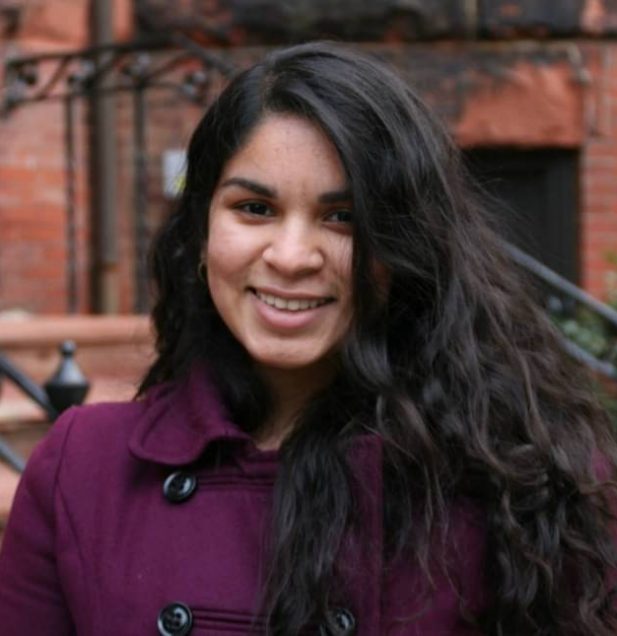 Emily Ghosh is a BU alumni, having obtained her BA in Physics with a Minor in Astronomy (CAS’16) and Masters in Materials Science (ENG’19). During her time in BU Physics, she focused on condensed matter experiment, undergraduate teaching, and was the co-founder and director of the undergraduate mentorship program PRISM. Outside of BU, she has held research positions at NETL (National Energy Technology Laboratory), CERN, and LBL (Lawrence Berkeley National Lab) in materials development for renewable energy technologies, such as solid oxide fuel cells, thin film materials development and characterization, and thermophotovoltaics. Over the last several years, she has worked as a Propulsion Engineer at SpaceX focusing on metal additive and coating alloy development, failure analysis, and process improvement for rocket engine components of missions such as NASA Crew flights to the ISS and upcoming Starship/Lunar/Mars missions. Emily is currently a PhD student in Materials Science and Engineering at BU.
Emily Ghosh is a BU alumni, having obtained her BA in Physics with a Minor in Astronomy (CAS’16) and Masters in Materials Science (ENG’19). During her time in BU Physics, she focused on condensed matter experiment, undergraduate teaching, and was the co-founder and director of the undergraduate mentorship program PRISM. Outside of BU, she has held research positions at NETL (National Energy Technology Laboratory), CERN, and LBL (Lawrence Berkeley National Lab) in materials development for renewable energy technologies, such as solid oxide fuel cells, thin film materials development and characterization, and thermophotovoltaics. Over the last several years, she has worked as a Propulsion Engineer at SpaceX focusing on metal additive and coating alloy development, failure analysis, and process improvement for rocket engine components of missions such as NASA Crew flights to the ISS and upcoming Starship/Lunar/Mars missions. Emily is currently a PhD student in Materials Science and Engineering at BU.
Dr. PAULA FEKETE, Associate Professor of Physics and Nuclear Engineering, United States Military Academy (USMA) at West Point
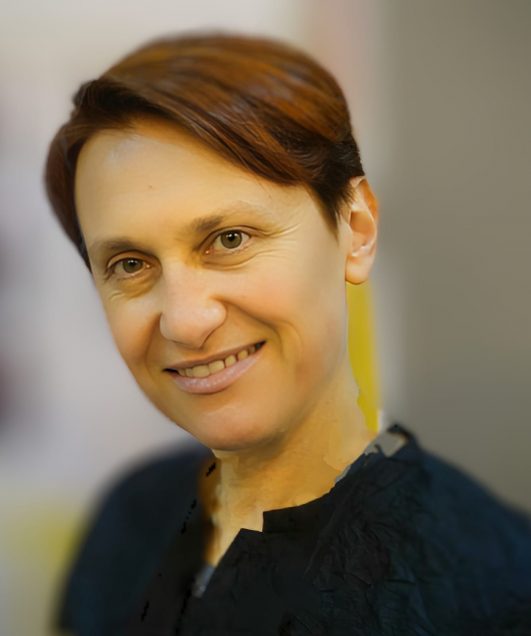
In the nearly sixteen years I have been on the USMA’s faculty, I taught, and course directed a wide variety of physics and space science courses. My most significant contributions to the teaching mission of the Academy were serving as the program director of the Interdisciplinary Science and Space Science Programs. I demonstrated active engagement in research, serving as research advisor to nearly forty undergraduates (to some over multiple semesters). I also made a sustained effort in getting our research results published in peer-reviewed journals as well as presenting them at national and international conferences. I served on numerous Academy governance committees to include the Curriculum, Academic Excellence, Diversity as well as the Library Committee. I chaired the Combating Mediocrity Committee. My most important activity in the area of service to my Department and the Academy in the last few years was developing an acquisition plan for equipment purchase for the new Observatory and the new Observational Astronomy course. This included planning and executing equipment installation as well as making the new telescopes functional for both visual observation and astrophotography. I also developed two new courses: Observational Astronomy and Astrophysics.
RACHEL FINCK, Head of Customer Engineering at Benchling
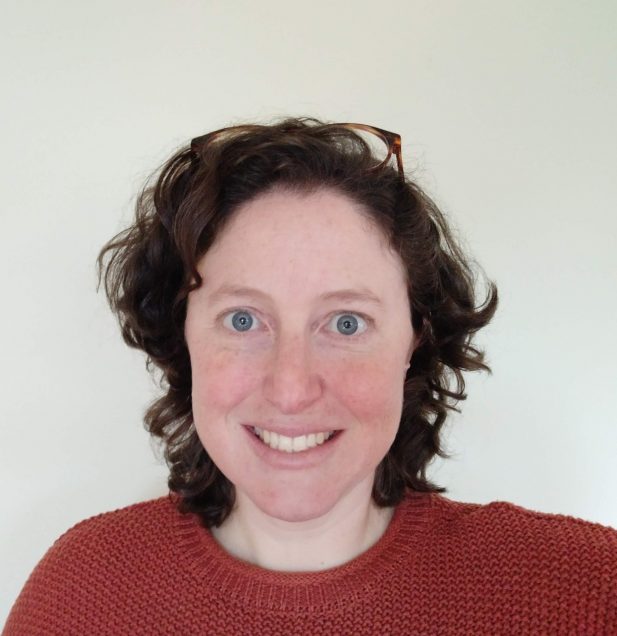 Rachel Finck started out in physics but has spent the majority of her career at the intersection of biotech and software. She is currently the Head of Customer Engineering at Benchling, a cloud-based platform for biotechnology research and development. Prior to that she was the Vice President of Software and Data Science at Ionpath, where she led development of the data platform for a novel tissue imaging technology based on secondary ion mass spectrometry. She has previously held positions at Verily (Google) Life Sciences and Stanford University, where her research focused on mass cytometry. She credits her physics background as a key ingredient for building tools that enable laboratory scientists to better leverage complex data from new technologies.
Rachel Finck started out in physics but has spent the majority of her career at the intersection of biotech and software. She is currently the Head of Customer Engineering at Benchling, a cloud-based platform for biotechnology research and development. Prior to that she was the Vice President of Software and Data Science at Ionpath, where she led development of the data platform for a novel tissue imaging technology based on secondary ion mass spectrometry. She has previously held positions at Verily (Google) Life Sciences and Stanford University, where her research focused on mass cytometry. She credits her physics background as a key ingredient for building tools that enable laboratory scientists to better leverage complex data from new technologies.
Dr. FLOR de MARIA BLASZCZYK, Application Physicist at Fermilab
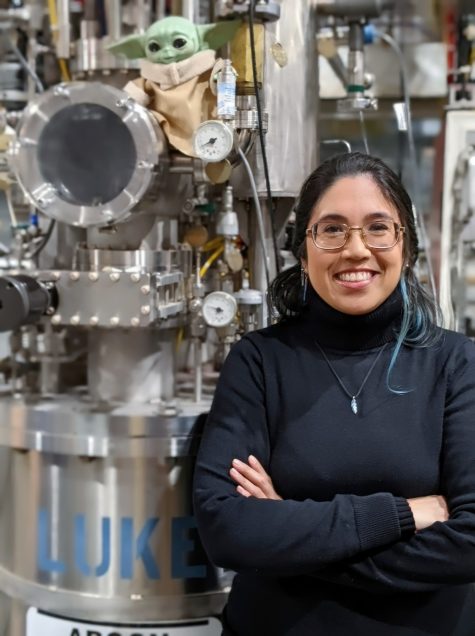
Dr. Blaszczyk works for Fermilab as an Applications Physicist and is currently the Liquid Argon R&D coordinator for the Fermilab Neutrino Division as well as the Noble Liquid Test Facility manager. Her main responsibility consists of supporting physicists in their R&D projects. This includes guiding them through the process of designing and building an experimental setup as well as coordinating all R&D activities within the division, in particular within the NLTF where there are as many as 10 R&D projects running in parallel at any given time. As a facility manager, she is working on upgrading the NLTF in every aspect to meet current and future neutrino physics needs.
Flor de Maria was born and raised in Peru, to a Peruvian mother and French father. She moved to France to do her undergrad and grad studies, then became a post-doc for LSU and later for BU before being hired as a full time staff at Fermilab. Prior to her current position, she designed, built, and commissioned slow control systems for LArIAT (Fermilab) and ProtoDUNE single phase (CERN) as well as did various neutrino physics analyses for the T2K and Super Kamiokande experiments.
Prof. TOYOKO ORIMOTO, Associate Professor of Physics, Northeastern University
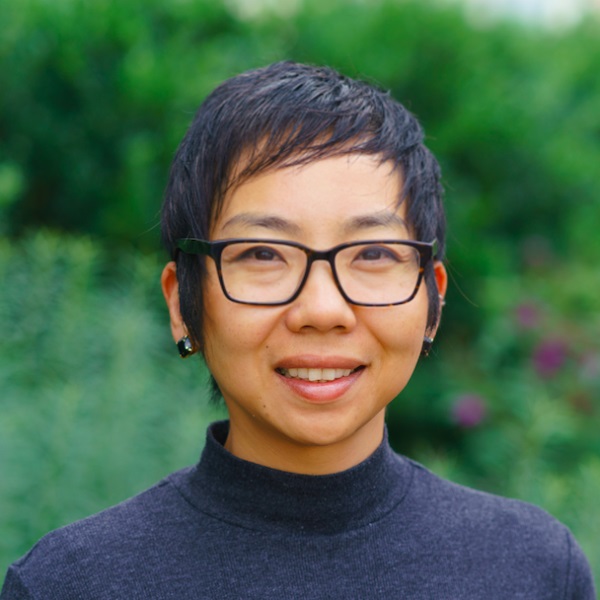
Prof. Orimoto is an experimental particle physicist who studies the smallest constituents of nature using one of the world’s largest science experiments–the CMS Experiment at the CERN Large Hadron Collider in Geneva, Switzerland. As part of the CMS Collaboration, Prof. Orimoto is interested in using the recently discovered Higgs boson particle as a probe for new beyond-the-Standard-Model physics, such as supersymmetry and extra dimensions. Moreover, Prof. Orimoto works on the CMS electromagnetic calorimeter and the new CMS MIP timing detector.
DR. JENNIFER PURSLEY, DABR, Assistant Professor of Radiation Oncology, Harvard Medical School
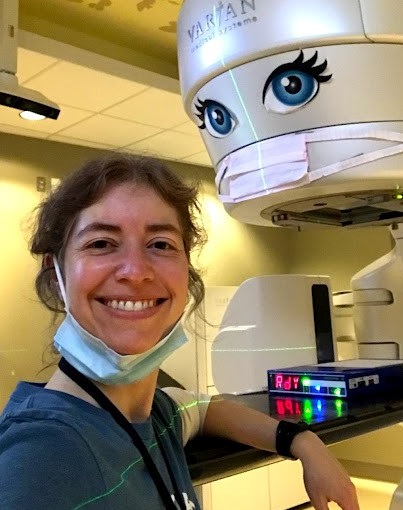 Dr. Pursley received her PhD in experimental particle physics working on the Collider Detector at Fermilab on B-baryon searches and high-mass Higgs searches. Then she decided to switch to medical physics and completed the Harvard Medical Physics Residency Program in Radiation Oncology physics. Now she works as an academic clinical physicist at Massachusetts General Hospital and Harvard Medical School. Dr. Pursley is the physics lead for photon treatment planning at MGH and leads MGH’s online adaptive therapy program, where a new radiation treatment plan is developed within minutes each day while the patient waits. She’s passionate about treating patients safely and effectively, teaching and mentoring the next generation of medical physicists, and increasing diversity in medical physics.
Dr. Pursley received her PhD in experimental particle physics working on the Collider Detector at Fermilab on B-baryon searches and high-mass Higgs searches. Then she decided to switch to medical physics and completed the Harvard Medical Physics Residency Program in Radiation Oncology physics. Now she works as an academic clinical physicist at Massachusetts General Hospital and Harvard Medical School. Dr. Pursley is the physics lead for photon treatment planning at MGH and leads MGH’s online adaptive therapy program, where a new radiation treatment plan is developed within minutes each day while the patient waits. She’s passionate about treating patients safely and effectively, teaching and mentoring the next generation of medical physicists, and increasing diversity in medical physics.
ASHLEY SLAY, Associate Director of Interpersonal Violence Prevention at the Sexual Assault Response & Prevention Center at Boston University
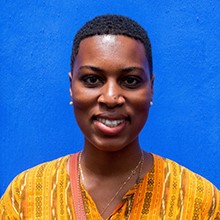 Ashley Slay was born and raised in Detroit Michigan and found herself in Boston when pursuing a degree in social work. Ashley now serves as the Associate Director of Interpersonal Violence Prevention at the Sexual Assault Response & Prevention center at Boston University. In her work she develops violence prevention programming and provides a strategic vision for creating safer environments through violence prevention. Her work encompasses addressing issues such as gender harassment, dating violence, sexual assault, and other forms of interpersonal violence that impact college campus communities.
Ashley Slay was born and raised in Detroit Michigan and found herself in Boston when pursuing a degree in social work. Ashley now serves as the Associate Director of Interpersonal Violence Prevention at the Sexual Assault Response & Prevention center at Boston University. In her work she develops violence prevention programming and provides a strategic vision for creating safer environments through violence prevention. Her work encompasses addressing issues such as gender harassment, dating violence, sexual assault, and other forms of interpersonal violence that impact college campus communities.
Prof. INDARA SUAREZ, Assistant Professor of Physics, Boston University
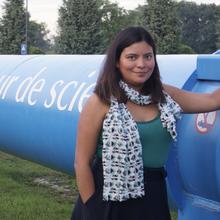
Dr. Suarez is searching for new particles, taking advantage of the wealth of data collected by the Compact Muon Solenoid (CMS) experiment during Run 2 of the Large Hadron Collider (LHC) program. Her group is one of the leading contributors to searches for dark matter candidates, partners of the top quark, and supersymmetric particles in CMS. These Run 2 searches are making use of new machine learning methods and will pave the road for the potential discovery of these particles in Run 3 and HL-LHC searches. The experimental challenges of the HL-LHC environment will necessitate various upgrades of CMS sub-detector systems. In parallel to her physics analyses efforts, her lab also works on developing muon detector electronics and the future Level-1 Trigger. Both of these efforts are crucial to optimizing searches for new phenomena at the TeV scale.
Prof. SUSANNA THON, Associate Professor of Electrical and Computer Engineering and the Marshal Salant Faculty Scholar at Johns Hopkins University
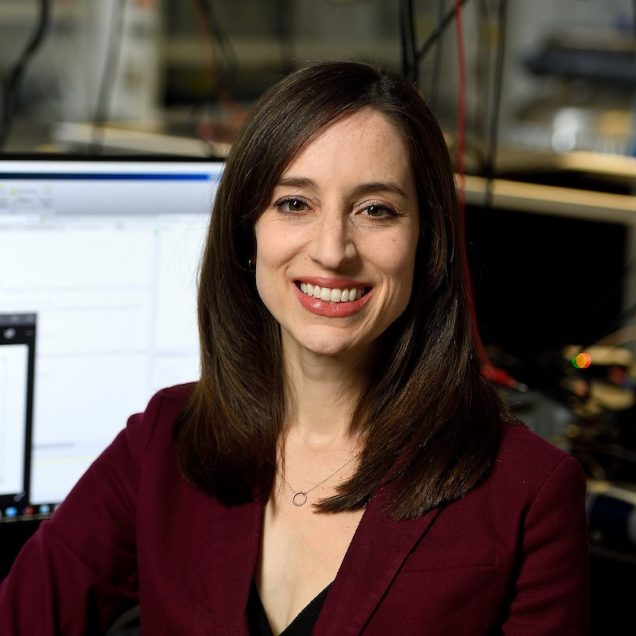 Susanna M. Thon’s research is in nanomaterials engineering for optoelectronic devices, with a focus on solar energy conversion and sensing. Thon’s work has received funding from the National Science Foundation, Maryland Energy Innovation Institute, TEDCO Maryland Innovation Initiative, American Chemical Society, and the Department of Defense. She is the recipient of Johns Hopkins’ Catalyst and Discovery awards and the National Science Foundation CAREER award, a founding member of the Ralph O’Connor Sustainable Energy Institute (ROSEI) at Johns Hopkins and a past chair of the Optical Society of America’s Optics for Energy Technical Group. Thon received her bachelor’s degree from MIT in 2005 and her master’s and Ph.D., all in Physics, from the University of California Santa Barbara in 2008 and 2010, respectively. Prior to joining Johns Hopkins in 2013, she worked as a postdoctoral fellow at the University of Toronto.
Susanna M. Thon’s research is in nanomaterials engineering for optoelectronic devices, with a focus on solar energy conversion and sensing. Thon’s work has received funding from the National Science Foundation, Maryland Energy Innovation Institute, TEDCO Maryland Innovation Initiative, American Chemical Society, and the Department of Defense. She is the recipient of Johns Hopkins’ Catalyst and Discovery awards and the National Science Foundation CAREER award, a founding member of the Ralph O’Connor Sustainable Energy Institute (ROSEI) at Johns Hopkins and a past chair of the Optical Society of America’s Optics for Energy Technical Group. Thon received her bachelor’s degree from MIT in 2005 and her master’s and Ph.D., all in Physics, from the University of California Santa Barbara in 2008 and 2010, respectively. Prior to joining Johns Hopkins in 2013, she worked as a postdoctoral fellow at the University of Toronto.
Prof. ALICE E. WHITE, Professor of Mechanical Engineering at Boston University
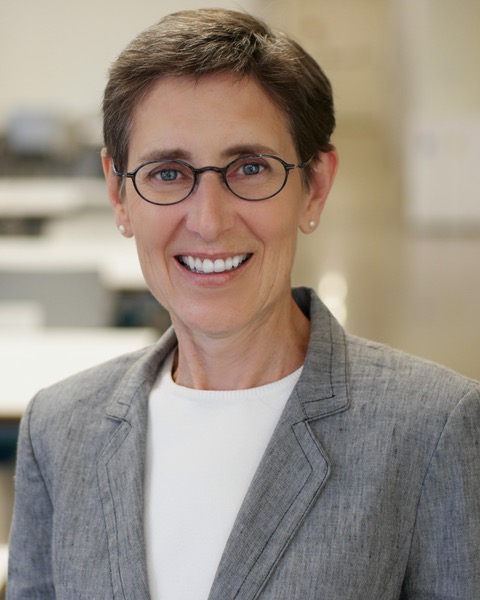
Alice White joined the College of Engineering of Boston University in 2013 from Bell Labs, where she held various leadership positions including Director of Materials Physics Research, Director of Integrated Photonics Research, VP of the Physical Technologies Research Center, President of the NJ Nanotechnology Consortium, location leader for Bell Labs North America, and finally Chief Scientist. She has a Ph.D. in physics from Harvard University and a broad technical background in experimental solid-state physics and fabrication of optical components. In 1991, she received the Maria Goeppert-Mayer Award of the American Physical Society for her work on compound formation using ion implantation. She was named a Bell Labs Fellow in 2001 for her work in “developing and applying novel integrated photonic device technologies in advanced optical networks”. With over 135 publications and 10 patents issued/pending, she is a Fellow of the American Physical Society, the IEEE Photonics Society, and Optica (formerly known as the Optical Society of America). From 2013 to 2022, she was Chair of the 50-person Mechanical Engineering Department. In 2014, she established the Multiscale Laser Lithography Lab and is developing mechanical metamaterials for biological studies using a laser direct write technology. This research is one thrust of a recently established BU-led NSF Engineering Research Center (ERC), CELL-MET. In addition to her role in Mechanical Engineering, she is a Professor of Materials Science and Engineering, a Professor of Biomedical Engineering, and a Professor of Physics, as well as an affiliate of the BU Photonics Center and BU Nano.
LARISSA ZHOU, PhD candidate in Mechanical Engineering and Material Science, Harvard University
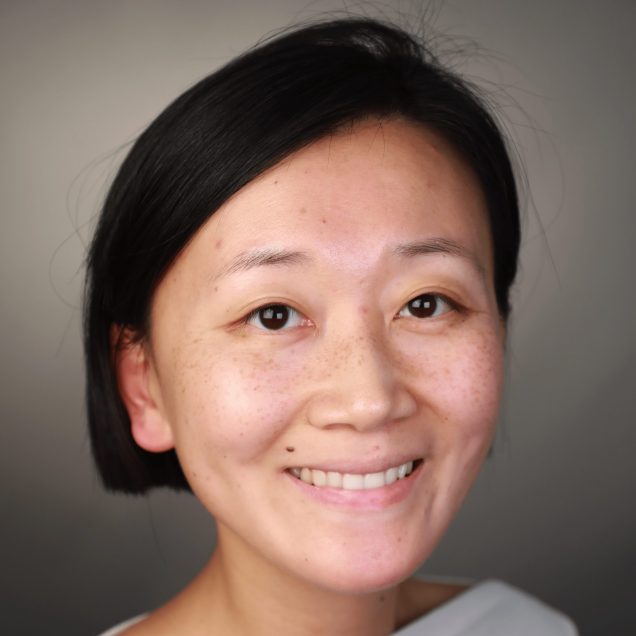 Larissa Zhou is a food scientist and engineer. Her research is on developing cooking technologies for low-resource environments, with a focus on spaceflight, and has been supported by the NASA Space Technology Research Fellowship since 2019. Larissa is a leader of InTouch, a peer mentoring group for graduate students at Harvard. She loves to climb and works to increase accessibility for underrepresented groups in the outdoors.
Larissa Zhou is a food scientist and engineer. Her research is on developing cooking technologies for low-resource environments, with a focus on spaceflight, and has been supported by the NASA Space Technology Research Fellowship since 2019. Larissa is a leader of InTouch, a peer mentoring group for graduate students at Harvard. She loves to climb and works to increase accessibility for underrepresented groups in the outdoors.
Previously, Larissa spent 5 years as the food scientist at Modernist Cuisine, where she led R&D on the award-winning, 5-volume book Modernist Bread. She got her start in the field by designing and teaching classes on the science of cooking at Harvard and UCLA. She received her AB in physics with a minor in social anthropology from Harvard in 2011.